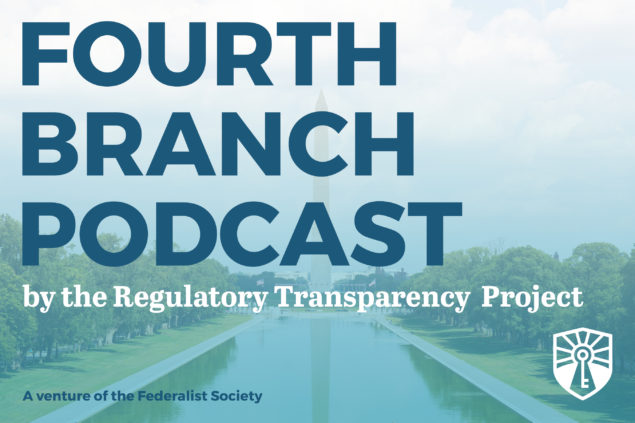Jeffrey Holmstead
Partner
Bracewell LLP

Jeffrey Holmstead
Partner
Bracewell LLP
Jeffrey Holmstead, former Assistant Administrator of the United States Environmental Protection Agency for Air and Radiation, is one of the nation’s leading climate change lawyers as recognized by Chambers USA (2008-2016) and heads the environmental strategies group (ESG) at Bracewell. The ESG is a multi-disciplinary group that includes environmental and energy attorneys, public policy advocates and strategic communications experts – most of whom have had high-level government experience. Under Jeffrey’s leadership, they work together on a daily basis to advise and defend companies and business groups confronting major environmental and energy-development challenges, both domestically and globally.
From his time in both the government and the private sector, Jeffrey is very familiar with the environmental and energy challenges facing the business community. He advises clients dealing with an increasingly complex regulatory, legal and public relations landscape, drawing on his experience in policy development, administrative and legislative advocacy, litigation and strategic communications. He has worked with clients in a number of industries on issues related to climate change, Clean Air Act policy and enforcement, and energy policy — including the development of new coal-fired power plants, refineries, renewable energy sources, and electric transmission infrastructure.
Jeffrey headed the EPA’s Office of Air and Radiation from 2001 to 2005, longer than anyone in EPA history. During his tenure, he was the architect of several of the agency’s most important initiatives, including the Clean Air Interstate Rule, the Clean Air Diesel Rule, the Mercury Rule for power plants and the reform of the New Source Review program. He also oversaw the development of the Bush Administration’s Clear Skies Legislation and key parts of its Global Climate Change Initiative. Between 1989 and 1993, Jeffrey served on the White House Staff as Associate Counsel to former President George H.W. Bush. In that capacity, he was involved in the passage of the Clean Air Act Amendments of 1990 and the key steps taken to implement those amendments. From 1987 to 1988, he served as a law clerk to Judge Douglas H. Ginsburg on the U.S. Court of Appeals for the District of Columbia.
He received his B.A. from Brigham Young University, summa cum laude, and his J.D. from Yale Law School.

A person listed as a contributor has spoken or otherwise participated in Regulatory Transparency Project events, publications, or multimedia presentations. A person's appearance on the website does not imply an endorsement or relationship between the person and the Regulatory Transparency Project. The Regulatory Transparency Project takes no position on particular legal or public policy issues. All expressions of opinion by a contributor are those of the contributor.
Contributions
New Report: “37 Biden Administration Regulations in the Pipeline that Americans Should Know About”
Jeffrey Holmstead
The Heritage Foundation has just released a special report entitled “37 Biden Administration Regulations in the Pipeline that Americans Should Know About.”
Read this articleDeep Dive Episode 135 – Evaluating the EPA’s Proposals to Retain the Existing Particulate Matter and Ozone Standards
Experts discuss the EPA’s recent proposals to retain both the existing particulate matter and ozone primary and secondary standards.
Listen to this podcastDeep Dive Episode 132 – A Conversation with EPA Administrator Andrew Wheeler: New Rule on Guidance Procedures and More
This live podcast features EPA Administrator Andrew Wheeler and Jeffrey Holmstead discussing the EPA’s recent rulemaking regarding agency guidance documents.
Listen to this podcastA Conversation with EPA Administrator Andrew Wheeler: New Rules on Guidance Procedures and More
In May, the Environmental Protection Agency announced a new proposed rule to “establish the procedures and requirements for how the U.S. Environmental Protection Agency (EPA) will manage the issuance of guidance documents subject to the requirements of the Executive Order entitled ‘Promoting the Rule of Law Through Improved Agency Guidance Documents.’” The EPA indicated that they “intended to increase the transparency of EPA’s guidance practices and improve the process used to manage EPA guidance documents.” The comment period for the proposed rule closed in late June.
On September 14, 2020, the Regulatory Transparency Project hosted an informative conversation with Administrator Wheeler and Jeffrey Holmstead.
Watch this videoExplainer Episode 3 – EPA’s New Clean Air Act Rules
What does the Clean Air Act authorize EPA to regulate, how much discretion does EPA have in regulating emissions, which plan more closely fits the intent of the original law? These and other questions are taken up in this engaging discussion.
Listen to this podcastAgency Rulemaking: Unnecessary Delegation or Indispensable Assistance?
On June 18, 2019, the Federalist Society’s Article I Initiative and Regulatory Transparency Project hosted a panel on “Agency Rulemaking: Unnecessary Delegation or Indispensable Assistance?” at the National Press Club in Washington DC.
In his recent article, “Strategic Institutional Positioning: How We Have Come to Generate Environmental Law Without Congress,” Donald Kochan lays out the argument that delegation of authority to agencies serves the interests of both sides of Congress. What are the advantages and disadvantages of such a system? Should specialized bureaucrats do the lion’s share of rulemaking? Or should elected Senators and Congressman, often without the same level of expertise, write the rules that govern our nation?
Watch this videoDeep Dive Episode 63 – Agency Rulemaking: Unnecessary Delegation or Indispensable Assistance?
What are the advantages and disadvantages of such a system? Should specialized bureaucrats do the lion’s share of rulemaking? Or should elected Senators and Congressman, often without the same level of expertise, write the rules that govern our nation? In this episode, experts discuss these questions and more.
Listen to this podcast





